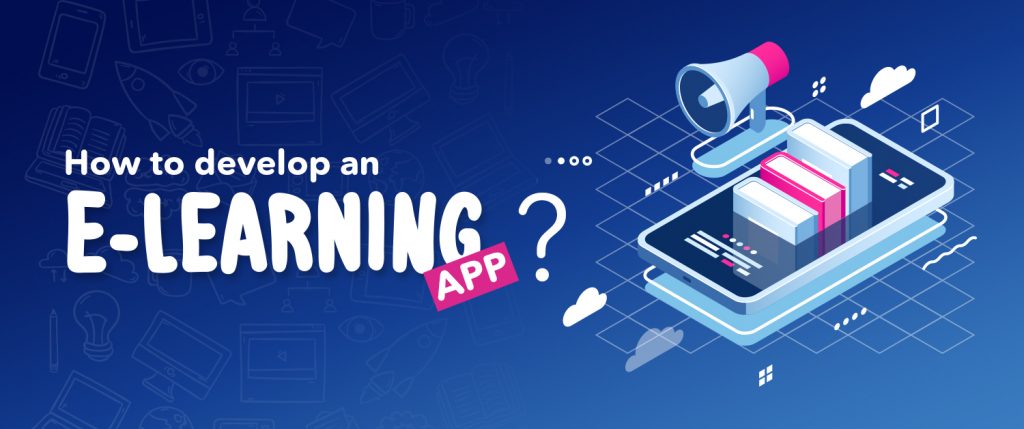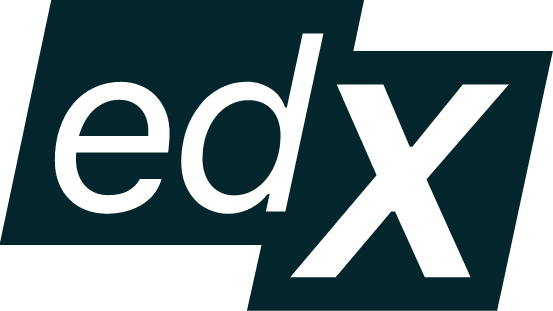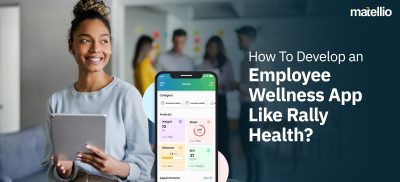
eLearning apps are a great tool for education givers and seekers. These apps are used by teachers and students alike to not only reduce the learning time but also to make the overall process of education more engaging, streamlined, and flexible.
Consider the following example:
A student is struggling with some of the topics that are sure to be in a class test the next day. She has tried everything she could to understand these topics; she’s tried reading her books, she’s tried sifting through her notes, and she’s even tried understanding the topics from her friends, but nothing has worked so far. But then, she recalls hearing about an eLearning app from one of her classmates. Desperate to find answers, she downloads the app to her phone and is surprised to find out that not only does this app has a slew of learning material on the topics she’s struggling with, but in various formats like videos, eBooks, and live lectures, but also a host of practice tests and exercises that can help her prepare better for her test the next day.
In the above example, an education seeker was able to find relevant learning material and in multiple formats which furthered her education and in ways classrooms never can. With the help of eLearning apps, students decide their learning pace and the format that they find most engaging and beneficial. Every student is different and as a result, their grasping power and learning speed differs than the rest.
As a result, the one size fits all approach of a classroom is not of much use for all the students. At least it never succeeds to help students the academics heights they if they had access to a method of education that was custom designed for them. And that is exactly what most eLearning apps try to do. They provide customization for education based on a student’s merits and skills.
And if you are an educator of an entrepreneur looking for eLearning app development services, then you’ve come to the right place. In this blog post, we learn about custom eLearning apps, what are some of the best ones around, and finally how you can develop one for your business as well.
So, without wasting anymore time, let’s jump right in!
What are Custom eLearning Apps?
Custom eLearning apps are a booming industry. These are a set of mobile-device based education-specific digital tools that help students, corporate workers, or just people who like to learn new stuff but don’t have the time to take conventional, physical classes, get the education they desire in a flexible, remote fashion. These apps come with a host of features and functionalities that make the learning and teaching a more streamlined affair.
Custom eLearning apps come in all shapes and sizes. They can be traditional remote learning solutions with live lectures feature which allows students to join a remote lecture. Or they can be for niche purposes like learning a new language or learning how to play the guitar. Many eLearning apps also work something like market place where students can connect with the teachers on the portal for specific lessons. These apps have separate student and teacher accounts and all manners of features that makes the interactions between the two groups smooth and secure.
eLearning apps are a growing trend, and that shouldn’t surprise anyone given all the benefits they have to offer. Some of the other key reasons behind the massive surge in their popularity are:
- Customized learning methods based on student preferences and learning speed
- Cost-effective learning experience
- Easy accessibility with productive learning
- Highly efficient teaching
- Effective and flexible learning on the go
- Round-the-clock access to learning material across the globe
- Course quality is well-maintained and tailored according to the student’s requirements
- Full-length animated videos to explain topics with ease
Also Read: eLearning App Development – How to Create an App like Quizlet?
Top Players in eLearning Apps on the Market
MindFlash
If you are one seeking to train a huge community of learners spanning customers and employees of your organization, MindFlash is all you need. Besides providing a dedicated platform to the knowledge seekers, it lets the users create courses, manage trainees, add quizzes and track output. Features of MindFlash can be summarized as follows:
- Train new employees conveniently
- Comprehensive materials to provide awareness on products and services
- Customer care resources training
- Compliance training
- In-app audio and video recorder
- Material upload in various formats
- Reward students on the basis of successful learning
Photomath
Photomath is tailored for high-school students who struggle with math. With over 100+ million downloads, Photomath helps pupils with tips and tricks on how to solve math problems, check their assignments and study for various exams free of cost. You can simply scan the math problem from your textbook or handwritten notes and the mobile app will break it down into simple, easy-to-understand steps helping you understand the concepts better. Key features of the mobile app include:
- Scan textbook (print) AND handwritten problems
- In-built scientific calculator and interactive graphs
- Step-by-step explanations for every solution
- Multiple solving methods
- No internet connection required to use
- 30+ languages supported
edX

The most amazing part of edX is its ability to bring top institutions like McGill and MIT at the tip of your fingers. Students can conveniently master new and in-demand skills anytime, from any part of the world. It centers learning material spanning an array of fields including computer science, data science, engineering, business management, marketing, finance, accounting, math, design, and more. edX is available for iOS as well as Android, and features following functionalities:
- Stream online classes in data science, blockchain, python, and more to learn on the go
- Download online courses to watch anytime
- Test your knowledge with quizzes and exams as you advance through each course
- View course announcements and handouts
- Advanced search so you can find online courses in any subject from HTML programming to philosophy, history, psychology and more
Also Read: Cost to Build an eLearning App like edX
Coursera

Coursera is one of the most popular eLearning apps available on iOS and Android. Whether the user is as young as a Kinder Garten student or as old as a professional, the app features 2000+ paid and free courses to choose from. And the best part is these courses are developed by experts from top institutions like Stanford, Penn, Google, Autodesk, and 150+ others. Notable app features include:
- Access to full catalog comprising 2,600+ courses in 11+ topics
- Stream video lectures from anywhere, or download them for offline viewing
- Always pick up where you left off: Your course, assignment, and project progress is saved in the app and on the web.
- Connect with a mentor, interact with other learners, or post questions for your instructor.
- Courses taught in Chinese, Spanish, Portuguese, French, Russian, and more. Subtitles and interactive transcripts help you follow videos.
- Earn shareable Certificates: Easily share your achievements with employers, colleagues, and friends.
Also Read: Build an educational app like coursera
How to Develop an eLearning App?
Developing any app is a big undertaking, especially for the newcomers. There are all sorts of pitfalls and mistakes you need to avoid if you want to develop a successful app.
To develop an eLearning app, you can either build your in-house development team or you can hire an outside eLearning app development firm that can develop the app for you. While building an in-house team gives you more control and better visibility about the project’s progress, it is also an absurdly expensive and complex affair. From hiring full-time talent to work on your app to providing them the latest infrastructure, you will be responsible for everything. This will not only be a monumentally expensive task but also a very complex one because you will constantly have to look out for health of your infrastructure and provide all manners of additional benefits and facilities to your employ. All these amount to a great deal of additional burden which new startups simply can’t afford.
Hiring a mobile app development company that has experience creating eLearning apps is not only more economical but will also give the benefit of their experience. eLearning is a competitive market and to really carve out a place for yourself, you need an experienced and highly skilled eLearning app developer like Matellio as your technology partner who can guide you through these incredibly tumultuous waters.
But if you want to build an in-house team but you don’t have a big budget, then you can look into staff augmentation services. They will allow you to build a small core team in-house that will do the most of the work but all the additional support can be provided by the outside firms on an hourly rate. This will prevent you from having to pay monthly salary to in-house talent you don’t really need. Staff augmentation will help you scale your development efforts up and down based on your needs.
Whichever route you choose to take, the following steps development should serve you well.
Step 1: Market Research and Planning
Before diving nose first into eLearning app development, you need to do thorough market research. You need to know who your competitors are going to be and what type of solutions they are providing. Knowing the pros and cons of their solutions will help you design a better app. To learn more about competitor app, you should consider talking to their customers directly. Conducting live interviews is a great way to get some firsthand review of their products.
You should also conduct a survey within your organizations and among your existing customers. The goal of this survey should be to decide what type of app they’d like for you to develop and what features they are most excited about. Also, take your business goals into consideration as well. Depending on your finances and goals set forward by the board, you will have to decide how you’re going to monetize your solution.
Document all your findings; this research will serve as the foundation of your app planning phase.
During the app planning phase, your goal is to come up with the general flow of your app. During the planning phase, you must be able to answer two big questions:
- What type of app am I building?
- What is the hook of my app?
Knowing what type of app you are about to build and what sets it apart from all the other apps like it that already exist on the market will help you give your app a unique personality and build an app that is truly one of a kind.
Also Read: A Complete Guide on eLearning Software Development
Step 2: Make a Feature List
Features to include while creating an eLearning App can be segregated according to the users. Here are the top ones to have.
General Features to Include in your custom eLearning Application
Syllabus
Make sure that the syllabus is developed in such a manner that you cover all the lessons. While doing this, you must also ensure that the time frame does not exceed the stipulated period.
Interactive Visual Learning
Make learning fun with the help of interactive visual learning powered by animations. This will help students master even complex concepts with ease.
Chapter-wise Tests
Just explaining the concepts is not enough. Students are also keen on knowing the level of expertise they hold after each interactive learning session. Chapter-wise tests enable the same. Make sure you provide a scope for the same and bifurcate the same on the basis of difficulty levels.
Options to Track and Analyze Performance
This feature will not only help the students to stay abreast of their performance but also ensure that the tutors know the pain points of their students to help them better. Thus, both of them can plan better and improve performance.
In-App Chat Dashboard
Students can easily connect with their mentors and clear out their doubts whenever they have and wherever they are.
Role-based Dashboard
The privileges of one user must not interfere with another. Moreover, a common dashboard will only hamper the user experience. Thus, a dedicated dashboard for each user, like students, tutors, managers, and admins, will provide a simplified view.
Student Panel Features
- Registration and Log-in
- Forgot Password
- Browse Courses
- Profile Management
- Search Courses
- Course details
- Payment Modes
- Download or Read Online
- Attend Test
Tutor Panel Features
- Registration and Log-in
- Forgot Password
- Add Courses
- Profile Management
- Assessment Tools
- Class/Group Management
- Manage Lessons
- Add to Library
Admin Panel Features
- Manage Themes
- Manage Courses
- Managing Subscriptions
- Add and modify packages
- Manage Users
- Content Management
- Transaction History
- Track Orders
- Shipping
- Ticketing
- CRM
- IVRS
Step 3: Choosing Team Members for your eLearning Application Development
To build an eLearning app seamlessly, you need a team comprising of experts for different purposes, including development, design, testing, management, etc. The exact number of resources you would need completely depends on the type of app you are planning, and the features you want in it. Each feature is usually built/assembled separately and then accessed together to work as an app. Here are the team members you would generally require:
- Project manager
- App developers
- Next-gen Tech Experts (Optional)
- UI/ UX experts
- QA and testers
- Digital marketers (Optional)
If you hire dedicated developers to build your eLearning solution, then the entire will be assembled by them, and you won’t have to worry about hiring them separately.
Step 4: Developing your eLearning App
Once you are done with deciding the features you want, you can move on to the development part. But here is where things get tedious and tricky at the same time. Making an eLearning application is no easy feat to conquer, and you will need to choose the best technologies and the best development partner to make the most of your investment. There are various platforms including mobiles, web, desktops, tablets, etc. For each of them, you will need separate apps (in most cases) and this choice could result in various outcomes.
The Development Platform for Your Virtual Classroom App
What most people go with is a combination of mobile apps and web apps, allowing access to anybody through the web and maximum performance for access on mobile phones. Given the nature of a customized eLearning app, this would be the best decision since both mobile apps and web apps can be built with major similarities on the back-end, keeping your solution cost-effective.
Native applications
Native application means specific applications for specific operating systems, in mobile, it branches into two separate apps for Android and iOS. If you plan to build native apps, you will be looking at 3 different applications: An app for Android devices, An app for iOS and iPad devices, and an app for the web.
Cross-platform applications
Cross-platform apps are capable of running on multiple platforms, fetching data from the almost same backend. In this case, you would essentially be building different front ends for devices of your choice, and the same can be implemented as a desktop/web application. Although it may seem like the obvious choice, there are a few downsides including less than best performance and a few compromises in the UX.
Step 5: Choosing the Technology Stack
An application isn’t just what we see on the front-end, a major effort is put into getting everything to work in sync. There are various APIs, databases, analytics, and other things involved, each of which demands a technology to be chosen. Various different sets of technologies exist, but choosing the best expert advice from an eLearning app development company is recommended. For example, half the technologies in the contender list won’t support load balancing, making scalability an issue.
Below are the technologies you need to choose:
Native App Development
- Swift
- Kotlin
- Java
- PHP
- Python
Cross-platform app development
- React Native
- Flutter
- Ionic
- Xamarin
Data analytics tools
- Python
- Java
- Amazon EC2
- Amazon S3
- Kafka
- Scala
- Amazon VPC
- Amazon EMR
- Apache Impala
- Utilities
- Elastic Search
- DevOps
- Chef
- AWS CloudFormation
Databases
- Aerospike
- MongoDB
- Cassandra
- HBase
- MySQL
- Postgre
Step 6: Testing, Launch, and Post-launch Support
Once you’re done with development, your app will undergo various types of testing phases in which your QA experts will try to ensure optimum performance and experience. All the critical and UI bugs will be identified and the fixed during this phase.
Once the QA gives a greenlight, the app is ready to be launched. But that doesn’t mean your job is done. For any successfully app, it is paramount to receive a consistent stream of updates and new features to keep the users interested and improve upon the original app. That is why post-launch services and support is vital for any eLearning app.
It’s Time to Start eLearning Application Creation
Custom eLearning apps help education institutes streamline their courses and bring them to their students in a more flexible way. The idea of custom and remote learning has taken the world by a storm since the pandemic. And now that the pandemic is over, people are unwilling to abandon the sheer comfort and flexibility that these apps have provided. As a result, the eLearning landscape is sure to be on the rise for the majority of the next decade.
If you are looking for top-notch DevOps consulting services, or if want to partner up with a mobile app development company to build your custom eLearning app, then Matellio is the right partner for you. We have years of experience building cutting-edge education and learning digital tools for schools, colleges, and corporates. Our bench of developers and subject experts runs deep and is chock-full of next-gen experts with proven skills in technologies like IoT, Big Data, AI in eLearning. We offer highly scalable and cost-effective services that are designed to fit the needs of all types of businesses. Over the years, we have offered digitization services to clients from across the globe. Matellio follows the Agile development methodology that allows us to make steady progress while keeping our clients at the heart of the entire process




